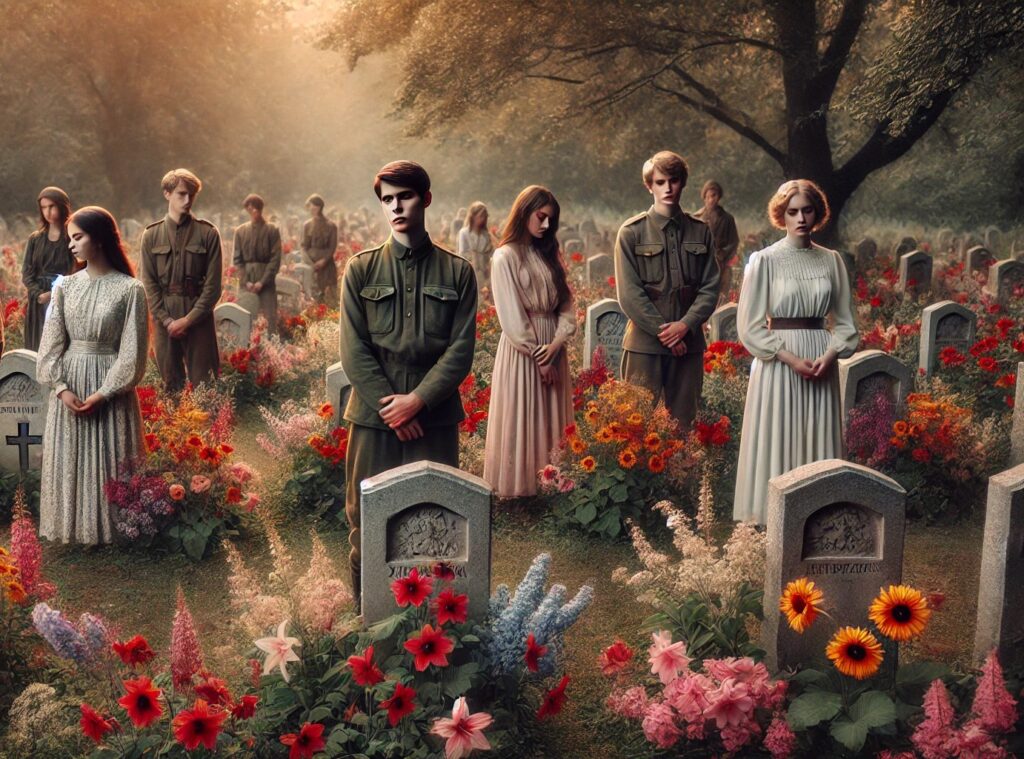
by Yong Soo Heong
It’s already almost the tail-end of 2024 and some 80 years after the end of World War II. But certain parts of the world are still fraught with conflict.
The senseless killing continues. In parts of the Middle East, Eastern Europe, Africa and South America. Only Asia is quite free from the scenes of large-scale destruction that we often see on our TV or mobile phone screens. Such wanton waste of life and property.
The funds expended on such massive destruction could have been better spent on research and development in medicine, especially in tackling cancer; raising food production to feed the world and addressing climate change.
That song, written by Pete Seeger and popularised by a host of singers, especially Peter, Paul and Mary, was aligned to the “Make Love Not War” generation of the Flower Power movement. The lyrics used the metaphor of flowers to symbolise youth and innocence lost to conflict. The song’s repetitive structure of the moving words creates a haunting effect to reinforce the effects of war and loss.
The “Flower Power” movement of the 1960s was a cultural phenomenon that promoted peace, love, and nonviolent protest, particularly in opposition to the Vietnam War. It started in the United States as part of the larger counterculture movement that embraced alternative lifestyles, challenged conventional norms, and rejected the materialism and militarism of mainstream society. The movement symbolised hope, a return to simplicity, and a belief in love and empathy as catalysts for social change.
Yes, that movement was a powerful catalyst towards the wise decision by the United States, which was then facing mounting losses in the battlefields of Vietnam, to end the war. Today, Vietnam is a beacon of a thriving emerging Southeast Asia economy
Have we learnt anything from the Vietnam War? Perhaps not, especially the perpetrators of continued conflict today. They stem from a host of reasons like geopolitical power dynamics among the superpowers; economic interests and resources against the backdrop of globalised interwoven economies; ethnic, religious, and cultural divisions stemming from post-colonial borders that were drawn without regard for ethnic, cultural, or historical factors; ideological and religious extremism, and to a great extent, access to weapons, cyber tools, and communication platforms that allow the perpetrators to disrupt states and economies on a scale previously unimaginable.
It’s said that addressing these issues holistically requires robust international cooperation, sustainable development, and policies that promote equitable resource distribution.
But then again, these are difficult to implement in a world of competing interests.
I’d rather reflect upon the lyrics of “Where Have the Flowers Gone” and enjoy the song than crack my head over these prickly issues:
Verse 1: Where have all the flowers gone?
Long time passing
Where have all the flowers gone?
Long time ago
Where have all the flowers gone?
The girls have picked them, every one
Oh, when will you ever learn?
Oh, when will you ever learn?
Verse 2: Where have all the young girls gone?
Long time passing
Where have all the young girls gone?
Long time ago
Where have all the young girls gone?
They’ve taken husbands, everyone
Oh, when will you ever learn?
Oh, when will you ever learn?
Verse 3: Where have all the young men gone?
Long time passing
Where have all the young men gone?
Long time ago
Where have all the young men gone?
They’re all in uniform
Oh, when will you ever learn?
Oh, when will you ever learn?
WE